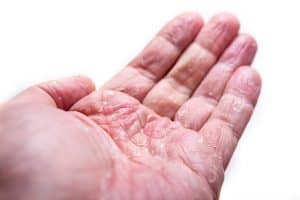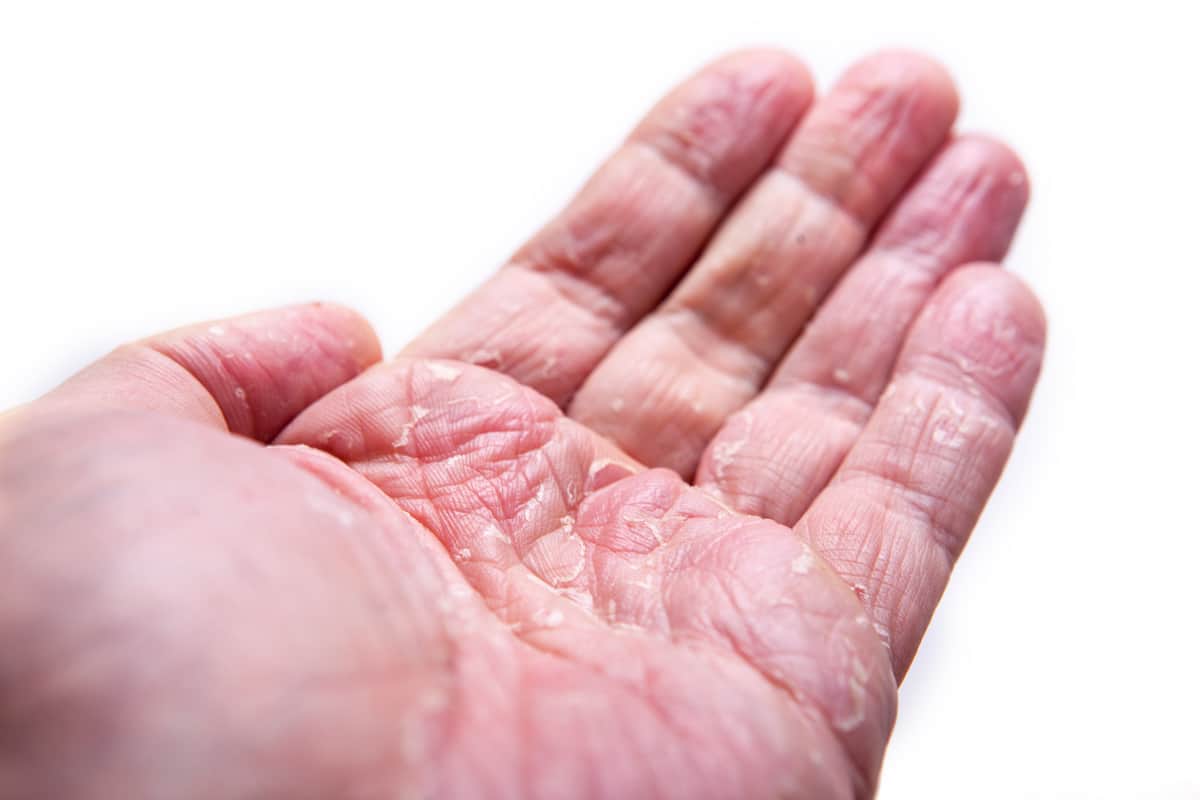 Eczema is a common condition that can wreak havoc on your skin. The tell-tale signs of eczema may include dry and sensitive skin, red and inflamed skin, very significant itchy skin, dark colored patches of skin, skin with rough leathery or scaly patches, skin that is crusty or oozes, or areas of skin with swelling. Eczema breaks down the barrier that the skin serves as from bacteria and irritants. Aside from having to deal with the seemingly endless cycle of itch-scratch-flare of this disease, eczema can also have detrimental effects beneath the skin.
Eczema is a common condition that can wreak havoc on your skin. The tell-tale signs of eczema may include dry and sensitive skin, red and inflamed skin, very significant itchy skin, dark colored patches of skin, skin with rough leathery or scaly patches, skin that is crusty or oozes, or areas of skin with swelling. Eczema breaks down the barrier that the skin serves as from bacteria and irritants. Aside from having to deal with the seemingly endless cycle of itch-scratch-flare of this disease, eczema can also have detrimental effects beneath the skin.
There are many conditions that are related to eczema or that eczema may trigger. Eczema, essentially, is an over-activity of the immune system, so it can be expected that this can have serious effects on the rest of the body. Since eczema usually develops in children, their development can be impacted in the area of health. Asthma has become associated with eczema due to the inflammation in the airways. Allergic reactions occur when the immune system is triggered. Hay fever, or allergic rhinitis is another such condition that can occur with atopic dermatitis. A significant percentage of children diagnosed with eczema have one or more types of food allergies. Another condition that parents will be familiar with is seborrheic dermatitis, or cradle cap; this can also occur in adults and can be mistaken for severe dandruff.
Eczema can be directly tied to various types of staph infections. Due to the severe itching and burning sensations in the skin, many people will be unable to resist scratching; some scratch so much that they can cause bleeding wounds. These can quickly become infected. Staph infections can come in the form of furuncles (boils), impetigo, and cellultis. Those with eczema may also be at greater risk for developing more serious illnesses. Depression and attention deficit hyperactivity disorder (ADHD) have been associated with eczema. Eczema can be related to conditions such as heart disease, high blood pressure, and stroke. The inhibition of the immune system by eczema can have drastic effects on the body. It does not mean that eczema causes these conditions; rather, they can be linked to each other due to the common mechanisms.
Luckily, there are a lot of treatments available. Immunosuppressants help stop the eczema cycle and reduce the risk of staph infection. Cyclosporine, methotrexate and mycophenolate are among the most common prescriptions. However, they do come with risks and side effects. Phototherapy is an increasingly popular option that does not come with the typical side effects of medications. Phototherapy does take multiple treatments and carries cosmetic risks, such as increased skin aging, and increased risk of skin cancer. Protopic and Elidel are topical calcineurin inhibitors, nonsteroidal topical medications, which serve by stopping the immune system from initiating redness and itching. Steroids are the most common option. Corticosteroids have been used to tremendous effect for over 50 years for treating inflammatory skin conditions.
Consulting with a dermatologist to decide on the right course of treatment is the surest way to get results. Appointments are available for consultations at both the Plainfield and Zionsville offices for The Dermatology Center of Indiana.
Disclaim: This blog provides general information and discussion about medical, cosmetic, mohs, and surgical dermatology. The words and other content provided in this blog, and in any linked materials, are not intended and should not be construed as medical advice. If the reader or any other person has a medical concern, he or she should consult with an appropriately-licensed dermatologist or other health care worker.
